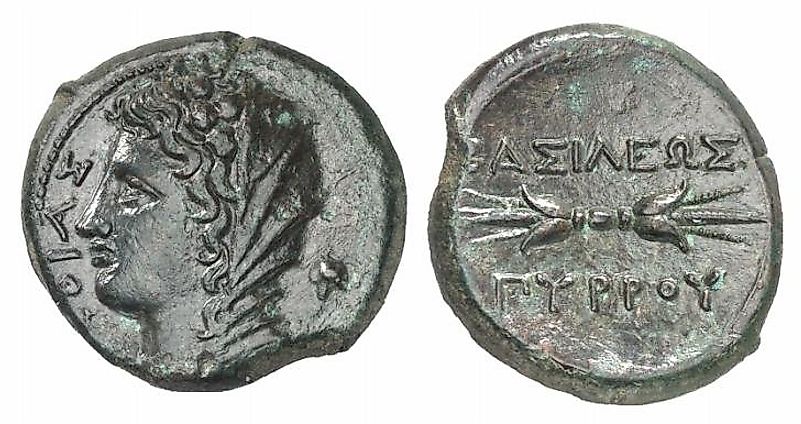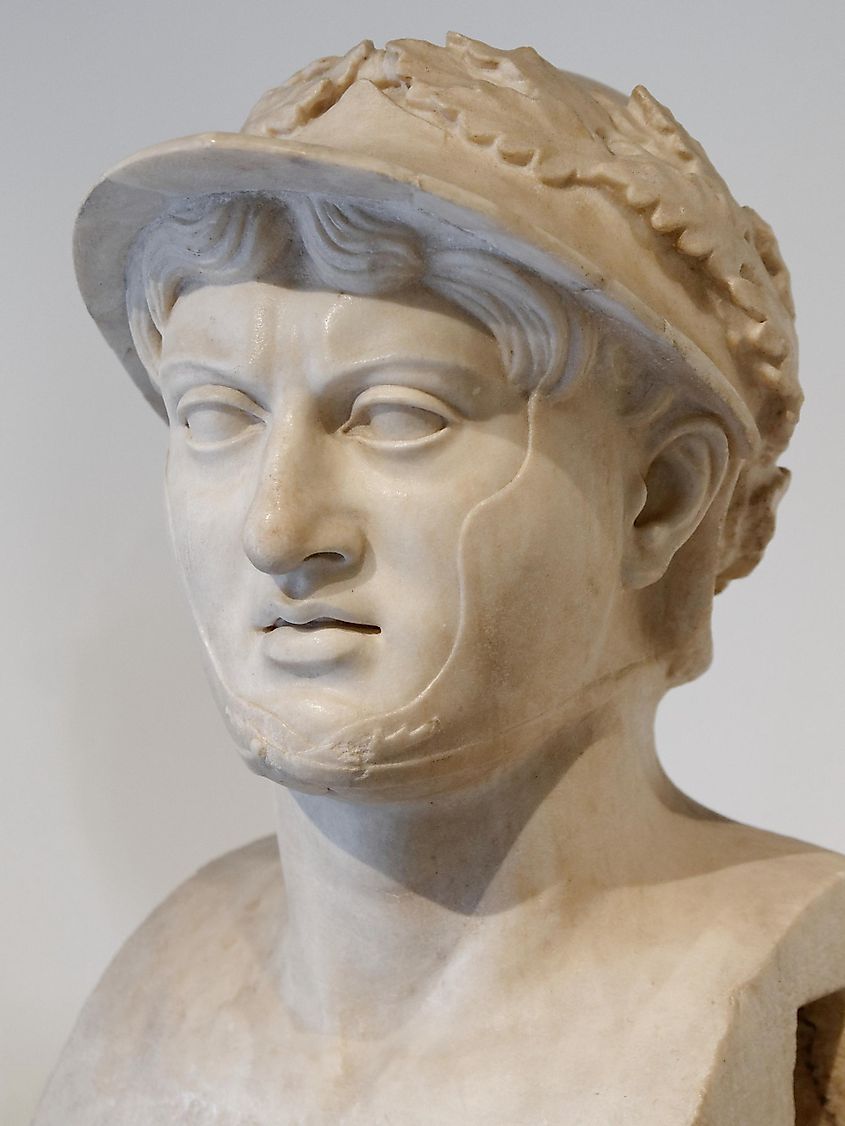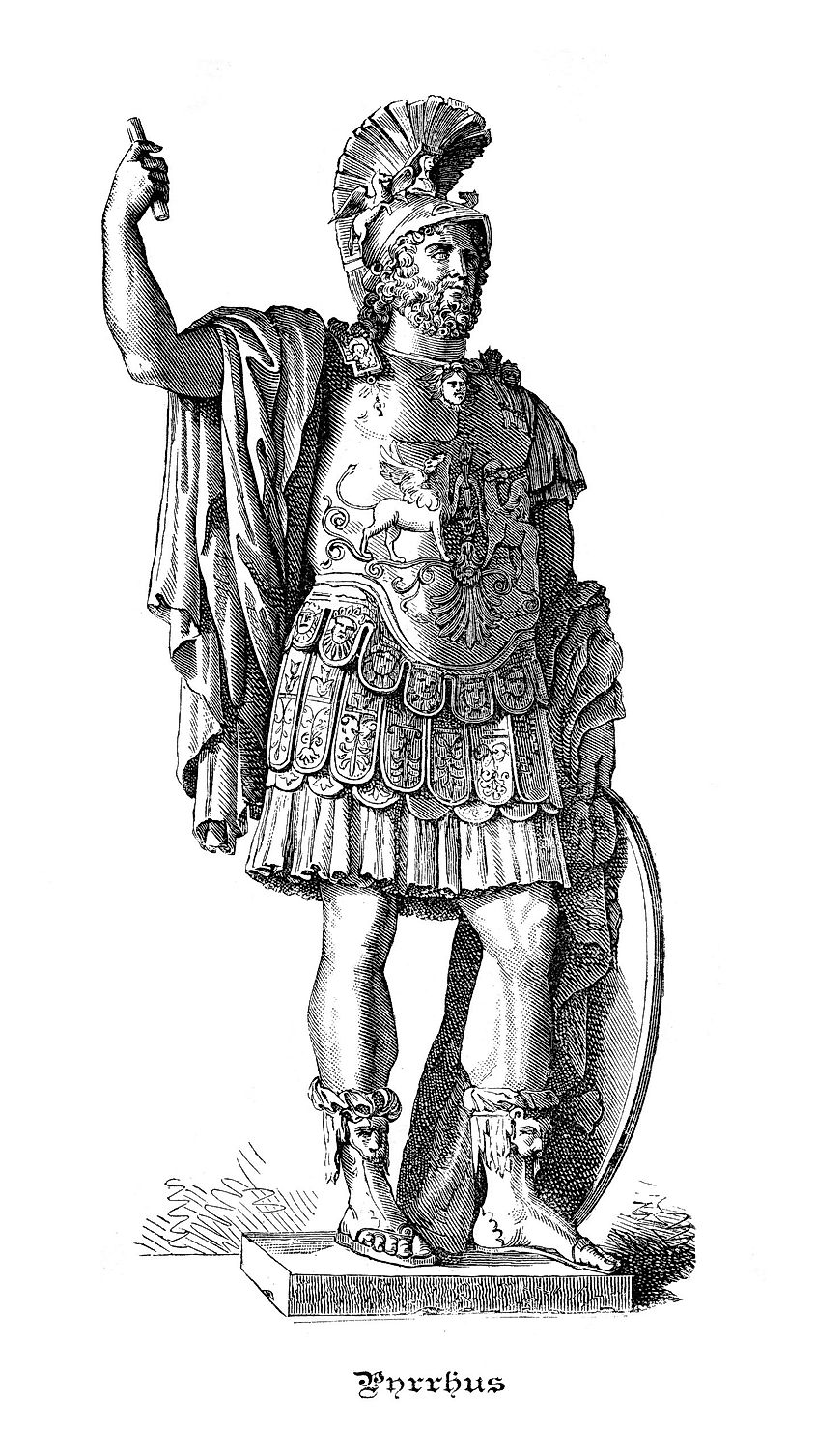
Who Was Pyrrhus and What is a Pyrrhic Victory?
You might be familiar with the phrase "Pyrrhic victory." It's a phrase often used without too much thought into where it came from. However, understanding the phrase's history helps us appreciate the phrase more. "Pyrrhic victory" was originally meant to mean a military success gained at such a high price that the victory might be too costly. The words were inspired by King Pyrrhus's victory against the Romans. Who was this King, and what did his victory entail? Here, we will delve into these questions and how this history shaped the phrase. By the end of this article, you'll consider if you ever want to win a Pyrrhic Victory.
The Origins of the Words

A Pyrrhic victory describes a victory that isn't worth winning because of how much we must lose in order to achieve it. The origin of the words dates back to ancient Rome and the King Pyrrhus of Epirus. The King suffered tragic losses in his battle against the Romans in Apulia in 279 BCE. While he won the battle, he lost so much that people questioned if winning was worth the sacrifices made.
The word Pyrrhic was first used as an adjective in the 17th century. People used it to mean anything relating to or resembling Pyrrhus. Later, in the 19th century, people started using the word Pyrrhic with the word victory. This phrase was originally used to mean 'victory achieved at an excessive cost.'
King Pyrrhus

The man who inspired the phrase, King Pyrrhus, was king of Hellenistic Epirus. Many people cite Pyrrhus as one of the most powerful individuals and greatest successors of Alexander the Great. Pyrrhus wrote a series about the art of war, which many generals read at the time.
He became ruler of the most powerful tribe in Epirus at just twelve years old. Although he gained power to the throne at a young age, he created a powerful empire. His empire covered Epidamnus to Ambracia. In modern days, this is the city of Durres in Albania and the city of Arta in Greece. Throughout his reign, he was also King of Macedonia.
In 302 BCE, Pyrrhus lost his throne. He fought alongside his ally, Demetrius, in Asia. Eventually, Pyrrhus went to Alexandria as a hostage. There, he befriended Ptolemy, who eventually helped restore him to his kingdom. After regaining control, he fought a series of battles.
The campaign against Rome

The biggest battles fought by Pyrrhus were in his campaign against Rome. In 282 BCE, the Greek city of Tarentum asked for Pyrrhus's help to fight Rome. Pyrrhus agreed, thirsty for further conquest. In 281 BCE, Pyrrhus arrived in southern Italy, prepared with a big army, including a heavy cavalry and war elephants. Pyrrhus won the battle against the Romans but suffered great casualties.
A few years later, he fought Rome again at Ausculum in Apulia. While he defeated Rome again, his army suffered further causalities. In 278 BCE, Pyrrhus crossed into Sicily and conquered most of the Punic province. These victories were successes for Pyrrhus. Pyrrhus became well known for fighting with his men in battle. In ancient Roman lore, the Romans saw battles against Pyrrhus as the closest thing to fighting Alexander the Great himself.
The Pyrrhic victory

While these battles were considered victories against Rome, they were not without losses to Pyrrhus's men and his army. The battles against the Romans hardened Pyrrhic's army. Everyone suffered greatly from both battles, and there were little to no options for reinforcements back home. After his victory in Ausculum, Pyrrhus realized he had very few key officers and soldiers left. As a result of these losses and having few soldiers remaining, Pyrrhus soon left southern Italy. Leaving this early, he didn't have any permanent gains from his battles against Rome.
The Later Years
![The Siege of Sparta, by François Topino-Lebrun, featuring Pyrrhus of Epirus. In Wikipedia. https://en.wikipedia.org/wiki/Pyrrhus_of_Epirus By François Topino-Lebrun - [1], Public Domain, https://commons.wikimedia.org/w/index.php?curid=17866469](/r/w768/upload/3b/aa/19/the-siege-of-sparta-by-pyrrhus-319-272-bc-1799-1800.jpg)
Pyrrhus spent the next two years campaigning in Sicily. The campaign started out promising. Many Sicilian-Greek allies helped him with his cause. However, Pyrrhus quickly lost faith in the people's abilities. Pyrrhus fought again against the Romans at Beneventum; however, historians disagree on whether or not he won the battle. After the fight, Pyrrhus returned to Tarentum, where he headed home to Epirus with his forces. Pyrrhus continued to wage war on the Greek mainland for another three years. He fought Macedonia, Sparta, and Argos. In 272 BCE, Pyrrhus was unexpectedly killed in an unplanned street fight in Argos. Pyrrhus was killed when the mother of a soldier he was about to kill threw a roof tile on his head.
Legacy
According to the Romans, Pyrrhus's fighting was comparable to Alexander the Great. While his contemporaries considered him a strong foe and military commander, his name is used today as a cautionary tale. While Pyrrhus had many victories against the Romans, he experienced great losses. Today, we use the phrase a Pyrrhic Victory to reference a win that comes with a big sacrifice. Using this phrase begs the question of whether winning is worth it, considering the cost. This is something everyone can benefit from reflecting on.











